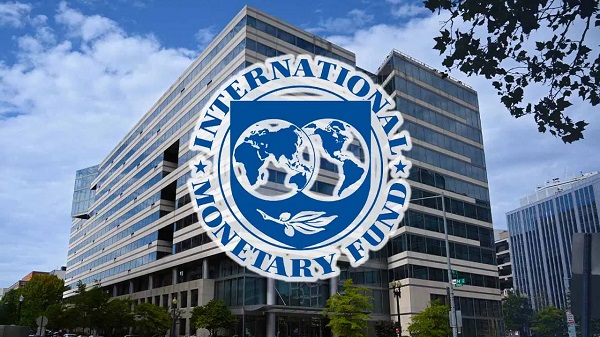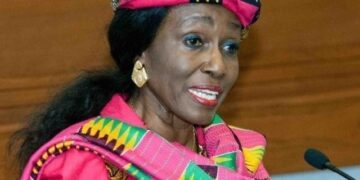ABUJA, Oct 14 (The African Portal) – The International Monetary Fund (IMF) has raised Nigeria’s 2025 economic growth forecast to 3.9%, citing stronger domestic fundamentals, improved investor confidence, and a moderated impact from global trade tensions.
The new projection represents a 0.5 percentage point increase from the IMF’s July 2025 forecast and nearly one percentage point higher than the April outlook.
In its October 2025 World Economic Outlook (WEO) titled “Global Economy in Flux,” the Fund said Nigeria’s real Gross Domestic Product (GDP) is expected to grow by 3.9% in 2025 — slightly below the 4.1% recorded in 2024 — before accelerating to 4.2% in 2026.
The IMF attributed the country’s growth resilience to higher oil production, a more supportive fiscal stance, and rising investor sentiment. It said reforms in the energy and financial sectors had begun attracting renewed capital inflows, while exchange rate adjustments had improved transparency in the foreign exchange market.
Trade balances
It also noted that Nigeria’s economy remains relatively insulated from the global tariff wars triggered by new U.S. trade measures, which have weakened growth prospects in many advanced economies.
Despite the improved outlook, inflation remains high. The IMF expects Nigeria’s average consumer prices to decline from 31.4% in 2024 to 23.0% in 2025, and further to 22.0% in 2026. End-of-period inflation is projected at 21% in 2025 and 18% in 2026, reflecting slow disinflation amid persistent food and energy price pressures.
Nigeria’s current account surplus is projected to narrow from 6.8% of GDP in 2024 to 5.7% in 2025, and further to 3.6% in 2026, as higher imports offset gains from oil exports.
The Fund said the projections reflect a major rebasing of Nigeria’s national accounts, with 2019 adopted as the new base year. The revised data capture previously underreported sectors such as the digital economy, informal agriculture, and modular refining, raising nominal GDP by more than 40%.
While welcoming the stronger growth projection, the IMF urged Nigeria to sustain credible fiscal and monetary policies, strengthen institutions, and accelerate reforms to ensure macroeconomic stability and inclusive growth.
Outlook
Speaking on Nigeria’s outlook, Denz Igan, Division Chief in the IMF Research Department, said: “For 2025, we have revised Nigeria’s growth rate upward to 3.9 percent, which is 0.5 percentage point higher than our previous projection. We have also upgraded the 2026 forecast by 0.9 percentage point, to 4.2 percent.
“Looking back, the 2024 GDP growth estimate has been revised upward to 4.1 percent, 0.7 percentage point higher than earlier figures. This reflects the authorities’ GDP revision and rebasing exercise, which provides broader coverage of economic activity, including parts of the informal sector previously not captured.
“For 2025 and 2026, the upward revisions mainly reflect reduced uncertainty and Nigeria’s limited exposure to U.S. tariffs, given its relatively low dependence on global trade. Since July, we’ve also seen exchange rate appreciation, stronger financial conditions supported by rising investor confidence, and a supportive fiscal stance.
“In addition, hydrocarbon growth has been revised upward due to higher oil production and improved security in producing areas. Together, these factors contribute to a more positive outlook for Nigeria’s economy.”






